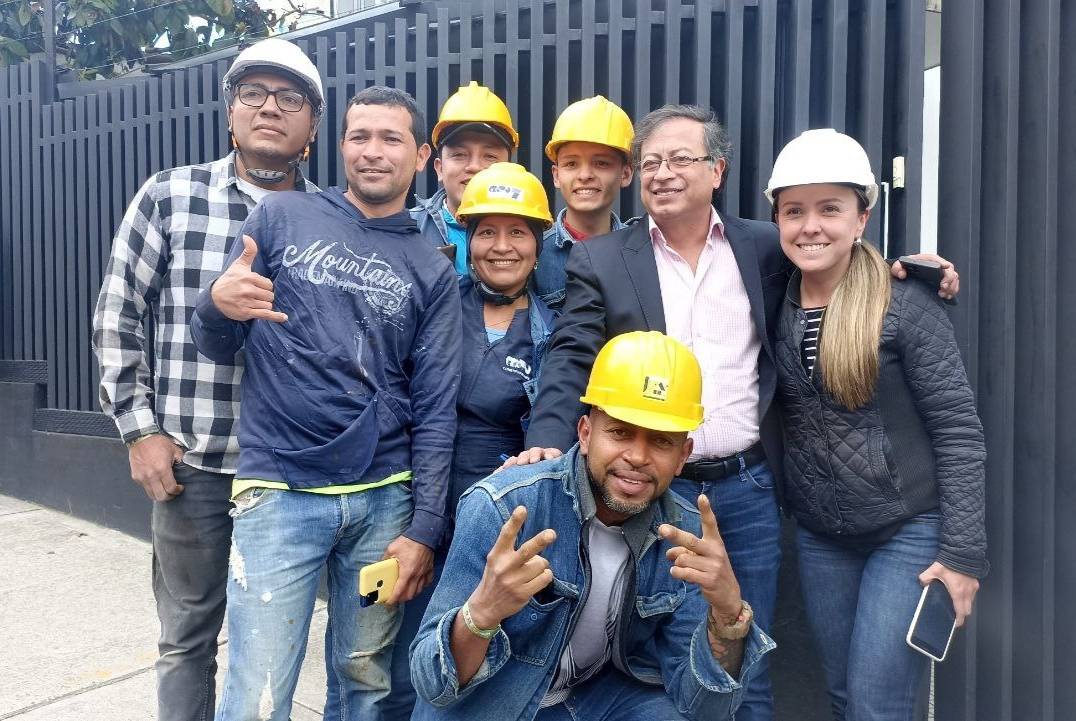|
Gustavo Petro just before casting his vote on Sunday, May 29, at Colombia's presidential elections first round. Photo: Reuters/Santiago Arcos.
Gustavo Petro and Rodolfo Hernández will be the candidates for a second round of elections for the presidency of Colombia, to be held on June 19. In yesterday’s elections, none of the candidates received the required majority of votes cast in order to win in the first round, defined in Colombian law as 50% plus one.
With 99.2% of votes counted, Colombia’s National Registry, the electoral authority, announced the candidates who will contest the second round. Gustavo Petro, candidate for the Historical Pact, obtained 8,479,095 votes, or 40.3% of the votes cast, while Hernández obtained 5,931,722 votes, representing 28.2%.
Although Petro’s result was expected, as he was the favorite in the polls, Hernández’s success, on the contrary, was surprising, given that he only became a contender during the last stretch of the campaign, when he began to approach the candidate of the right, Federico Gutiérrez, in the polls.
However, in the results this Sunday, Hernández managed to surpass Gutiérrez, who obtained 4,780,765 votes, equivalent to 23.98%, representing an important defeat for current president Iván Duque and his political mentor Alvaro Uribe.
Second round
Rodrigo Hernández became a controversial candidate, because his campaign was based on the fight against corruption while he faces investigations by the prosecutor’s office and the attorney general’s office for this very crime.
The results obtained this Sunday show that the second round will be tight, since Hernández could collect part of the votes from the right, as well as from those who oppose Gustavo Petro. Therefore, alliances will be the key for this second round. After finding out the results, the candidate Federico Gutiérrez announced that his coalition members will vote in the second round for Hernández, although Gutiérrez said that he will not be part of his government. “I have not spoken with Rodolfo, nor do we need to,” said Gutiérrez. “I want to express publicly that we do not want to lose the country or put the future of Colombia at risk, our families, and our children, and that is why Rodrigo and I will vote for Rodolfo next June 19.” Some analysts evaluate this almost automatic support for Hernández as evidence of both candidates’ (Hernández and Gutiérrez) representation of the interests of Colombia’s oligarchy and thus an early sign for those looking for a change to move to the alternative path offered by Petro. Other analysts see Hernández’s support as an indication that centrists and conservatives in Colombia will unite in the second round and present a challenge for Gustavo Petro. Some analysts evaluate this almost automatic support for Hernández as evidence of both candidates’ (Hernández and Gutiérrez) representation of the interests of Colombia’s oligarchy. In a political climate where the current right-wing regime is extremely unpopular, any link with the ruling conservatives could indicate to voters the class interests of the candidate, and work against Hernández at the polls. Gallup gave Duque a 76% disapproval rating in 2021. For voters seeking change, therefore, any association between Hernández and the status quo could benefit Petro. Other analysts see Gutiérrez’s support for Hernández as an indication that centrists and conservatives in Colombia will unite in the second round and present a challenge for Gustavo Petro. (RedRadioVE) by Ana Perdigón, with Orinoco Tribune content Translation: Orinoco Tribune Author
This article was republished from Orinoco Tribune.
ArchivesMay 2022
1 Comment
|
Details
Archives
July 2024
Categories
All
|

 RSS Feed
RSS Feed